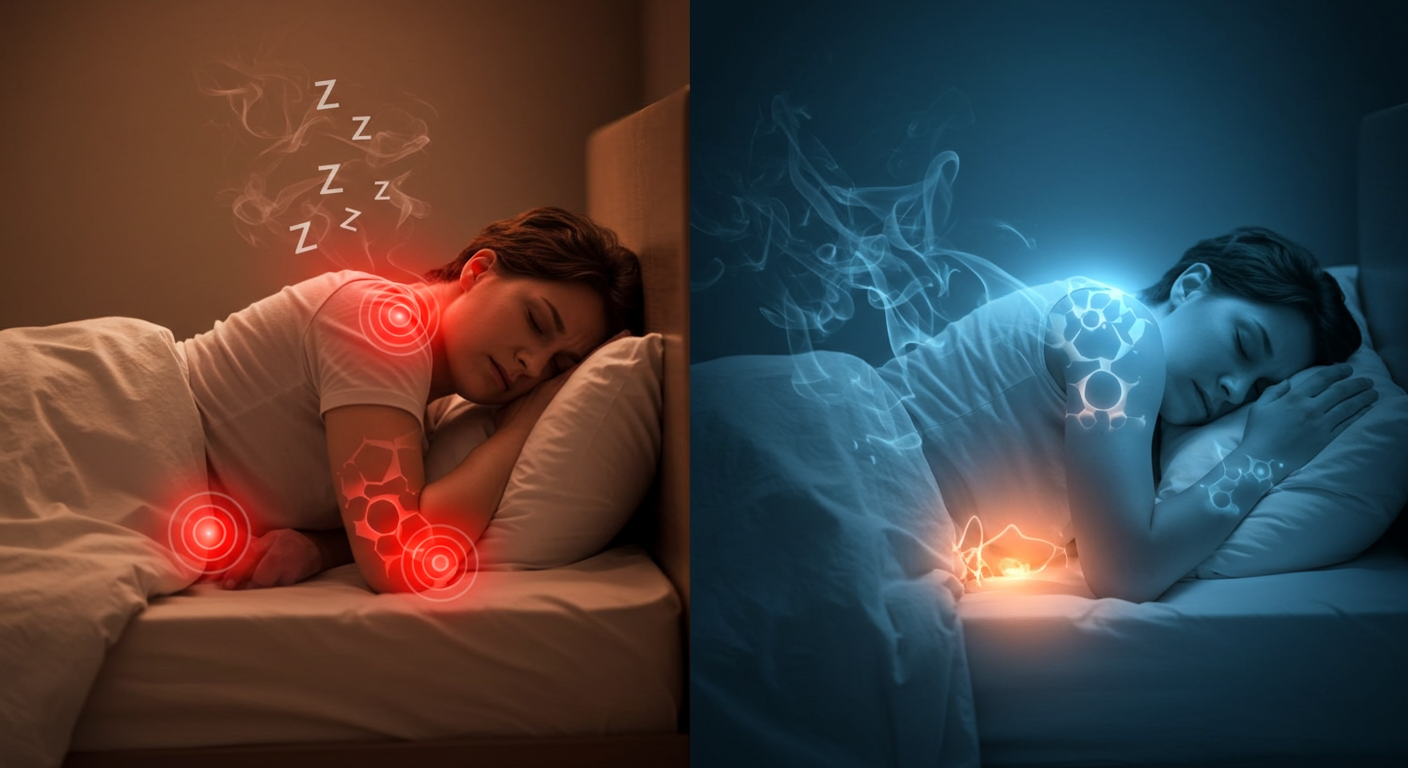The Hidden Link Between Sleep and Chronic Pain
Sleep and chronic pain share a complex, bidirectional relationship. Poor sleep can increase pain sensitivity, while chronic pain can disrupt sleep. Research shows that sleep deprivation lowers pain thresholds and increases inflammation, leading to a vicious cycle.
How Sleep Affects Pain
Sleep deprivation reduces the body's ability to regulate pain, increasing sensitivity.
Inadequate sleep leads to higher levels of pro-inflammatory markers like IL-6 and CRP, which contribute to chronic pain.
Deep sleep stages play a crucial role in tissue repair and recovery, essential for pain management.
How Pain Affects Sleep
Chronic pain can make it difficult to fall and stay asleep.
Pain-related anxiety often leads to hyperarousal, preventing deep, restorative sleep.
Sleep disruptions contribute to fatigue and impaired pain coping mechanisms.
Breaking the Cycle
Prioritize a consistent sleep schedule to reinforce circadian rhythms.
Reduce blue light exposure before bedtime to improve melatonin production.
Engage in relaxation techniques such as progressive muscle relaxation and mindfulness meditation.
By implementing these strategies, individuals can improve sleep quality, enhance pain tolerance, and break the cycle of chronic pain and poor sleep.

